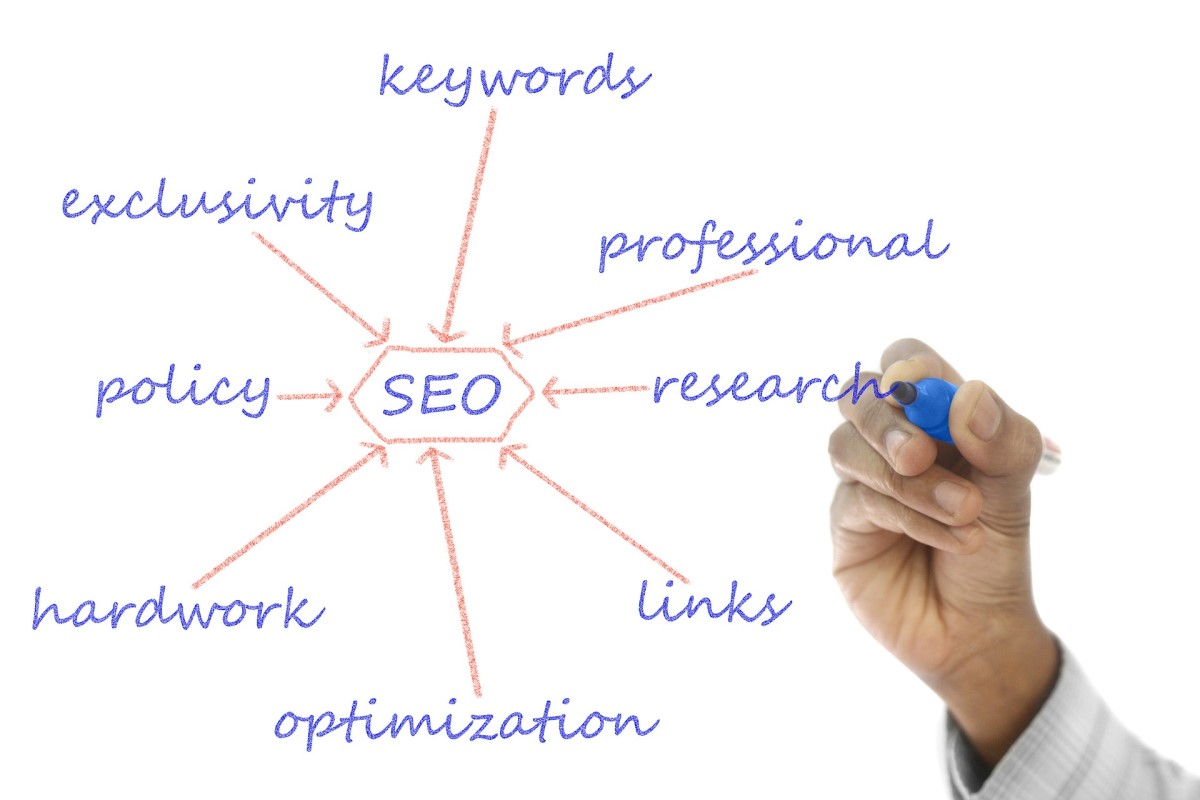All About SEO

August 2019
What is “SEO”?
SEO stands for Search Engine Optimization. What on Earth does that mean?! It means improving a website to make it appear near the beginning of the search results on Google, Bing, Yahoo!, and other search platforms without paying to be one of the first results. Why is this important? In today’s technology-focused world, many people go straight to their favorite search engine whenever they need anything – things like a place for a manicure, a pet sitter, or how to cook and clean. The websites that appear near the top of the search results get more visitors (traffic) to their websites. More traffic usually means more paying customers, which is why SEO is so important.
You might be wondering how search platforms organize their results. The secret is, nobody is 100% sure. That’s why you may find different answers in different places, and the answers have changed over time, too. The goal of search engines is to provide helpful websites that provide the information the searcher is looking for. As search engines have improved, the way they organize search results has changed to best answer the searcher’s query. Luckily, Google and other search platforms have shared some of the things that are important for their search results, and web gurus have done enough research to know a few other things that help improve a website’s search ranking. Keep reading to learn about the best practices of SEO to improve your site’s ranking.

First, it’s important to know that there are no shortcuts in pure (organic) search result ranking. You cannot buy your way to the top of the unsponsored (unpaid) search results. Any tactic that tries to manipulate the way to the top is considered “black hat SEO”. If any of the search engines catch on to the scheme, your website will be entirely removed from their search results. So, if something seems fishy or manipulative, don’t do it! The best way to the top is to provide a really useful website in your area of expertise that is accessible to all types of users.
Here are some Key Aspects of SEO:

Tracking and Analyzing SEO Strategies
Hopefully, you’ve learned what SEO is, why it’s important, and some of the biggest factors that contribute to a site’s ranking in search results. SEO is always evolving because search engines are always evolving to get better at providing useful sites to their searchers. You should revisit your site’s SEO strategies periodically to make sure your site stays competitive with the latest search methods. This is a long-term marketing strategy, and you shouldn’t expect to see drastic changes overnight. There are many free and paid tools available from organizations that specialize in SEO to help you track how your site is doing and identify areas where you can improve. Some of the most reputable sources for information are Moz, SEMrush, and Ahrefs. Google has some of their own resources, too. If you use WordPress, we highly recommend the Divi Theme or Yoast plugin for optimization. Send us a message if you have any questions about SEO, and we are happy to assist with your site’s SEO.
Stay updated!
Follow us on Facebook to be notified when new resource articles are posted, in addition to digital marketing tips and tricks.
